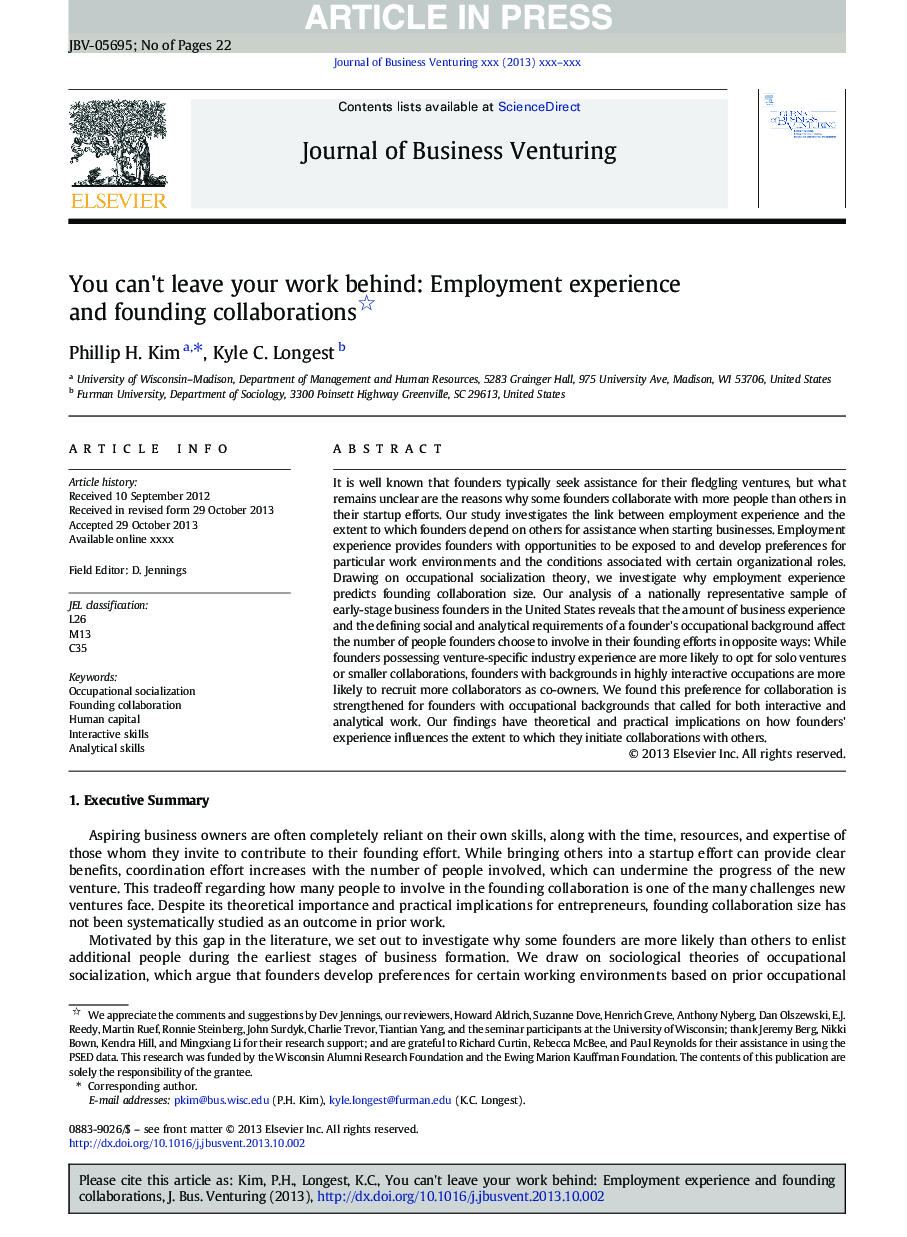| Article ID | Journal | Published Year | Pages | File Type |
|---|---|---|---|---|
| 10493921 | Journal of Business Venturing | 2014 | 22 Pages |
Abstract
It is well known that founders typically seek assistance for their fledgling ventures, but what remains unclear are the reasons why some founders collaborate with more people than others in their startup efforts. Our study investigates the link between employment experience and the extent to which founders depend on others for assistance when starting businesses. Employment experience provides founders with opportunities to be exposed to and develop preferences for particular work environments and the conditions associated with certain organizational roles. Drawing on occupational socialization theory, we investigate why employment experience predicts founding collaboration size. Our analysis of a nationally representative sample of early-stage business founders in the United States reveals that the amount of business experience and the defining social and analytical requirements of a founder's occupational background affect the number of people founders choose to involve in their founding efforts in opposite ways: While founders possessing venture-specific industry experience are more likely to opt for solo ventures or smaller collaborations, founders with backgrounds in highly interactive occupations are more likely to recruit more collaborators as co-owners. We found this preference for collaboration is strengthened for founders with occupational backgrounds that called for both interactive and analytical work. Our findings have theoretical and practical implications on how founders' experience influences the extent to which they initiate collaborations with others.
Related Topics
Social Sciences and Humanities
Business, Management and Accounting
Business and International Management
Authors
Phillip H. Kim, Kyle C. Longest,
